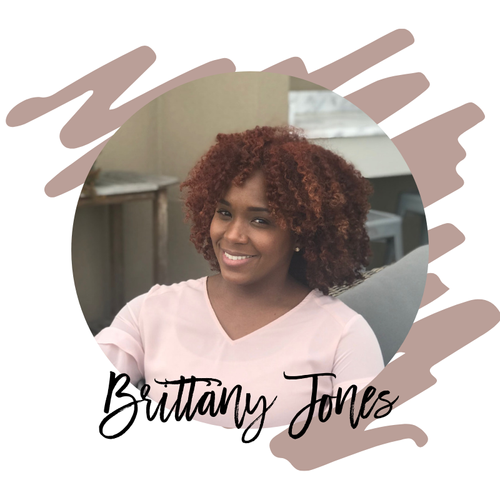How we've learned to ignore our needs when we need to dig deeper
HEY GIRL!
“How are you doing? I’m good, you good?”
This is a very common exchange used among black women to inquire about one another’s well being, but is that enough? Sometimes “I’m good” can be a quick escape from our innate desire to share during troubled times, or it allows us to give a neutral response to deter others from seeking the truth about what’s really going on.
JUST CHECKING IN:
How often do you check in with yourself in order to know what’s going on? Often times we move about our busy lives never stopping to ask ourselves if we are ok. Typically, we are awakened by a blaring alarm simultaneously hitting the snooze button at first sound. Often second-guessing our life decisions and career path, however fulfilling the routine of getting dressed and out the door.
Your needs are similar to your daily alarm; sounding off internally while we hit the snooze button because other things garner our attention and feel more important. Rarely, do we stop to ask ourselves; how do I feel? What do I need? Did I get enough sleep? Am I hungry? Let’s think about how this happens and why our individual needs are so important.
Related Podcast: 15 Minutes On The Couch "How to Practice Self-Care with a Busy Schedule"

We all have needs, and they are all important!
As humans, we all have basic needs that must be met in order for our bodies to function, to feel safe, and to interact in our environment. According to Maslow’s Hierarchy of Needs, an individual’s most basic, physiological needs are homeostasis, food, water, sleep, clothing, shelter, and sex. All of which keep us motivated to achieve higher level needs such as safety, love/social belonging, self-esteem, and self-actualization. These needs are vital to our ability to survive, engage with others and in the world around us.
As black women, the dismissal of our needs has been reinforced by the responsibility of managing our families, our careers, and friendships. Sometimes it feels like the weight of the world rests on our shoulders. This experience can best be described as the Super Woman Complex.
We wear the personal and societal challenges we face like an “S” on our chest, but who will come to our rescue?
Navigating these life stressors without resources coupled with unmet personal needs can be a recipe for psychological implications such as anxiety, depression, and post-traumatic stress. It is ok to give ourselves permission to take off the cape, and take care of ourselves.

Society has conditioned us to think that taking care of ourselves is selfish which can make the concept of self-care feel like it's wrong. When in fact, if our cup is full we can better serve others and perform at our highest levels. When things are not ok, how do you find yourself unconsciously defaulting to what would be socially or professionally appropriate? Let’s turn things outside in and ask yourself, what’s going on?
TAKE CARE:
Once you begin this practice, it may become easier to communicate your thoughts, feelings, and needs to others and increase your self-awareness.
Self-care is a journey that allows each of us to explore, understand ourselves better, and participate in society in a grounded, healthier way. Given the multiple hats we wear, systems that we engage in, and relationships that we maintain, it is important that we take a moment to ensure that our own needs have been satisfied.
DIG DEEP: FIND YOUR BASE
1) Breathe. Practicing present moment awareness and being mindful of what you need is the ultimate form of self-care. Before you hit the ground running each morning, take 30 seconds to breathe deeply and ask yourself, “what do I need right now.”
2) Assess your current state. Take some time to think about what ways to curate your life to be reflective of your specific needs. On a sheet of paper, write down the things in your life that are fulfilling and reciprocal and make a list of the things that you’d like to improve or eliminate. Replace life stressors with life giving practices.

3) Satisfy your needs. Give yourself permission to get what you need. Once you have identified your needs, allow yourself fulfill them. Take a nap, eat, be quiet, connect with a friend/loved one, be alone, whatever you need it is ok.
4) Engage external support. Maybe you have already identified your needs, assessed what needs to change, and have a good sense of self-awareness, but feel you need support as you continue to live your best life. This maybe a good time to see a therapist, life coach, or support group with similar goals in order to stay motivated when life throws a curve ball.
How Have You Practiced Self-Care?
BIO:

Brittany is a Licensed Master Social Worker by the State of Tennessee and has a Master of Science in Social Work from the University of Tennessee at Knoxville. In the past, she has worked in multiple settings that addressed life transitions for adults, women, and children. Her experience also includes counseling individuals with an extensive history of complex trauma, severe mental illness, depression, anxiety, and intellectual and developmental disabilities. Currently, she is a Licensed Psychotherapist at Symmetry Counseling, LLC, a group private practice in Nashville, TN. In her free time, Brittany enjoys being a 'foodie', self-care enthusiast, exercising, and spending time with friends and family.
References:
https://pochealthmatters.org/2017/08/01/first-blog-post/#more-4
https://www.psychologytoday.com/us/blog/hide-and-seek/201205/our-hierarchy-needs



